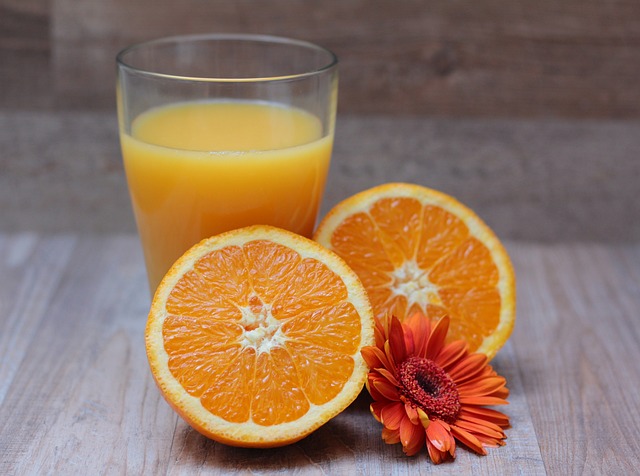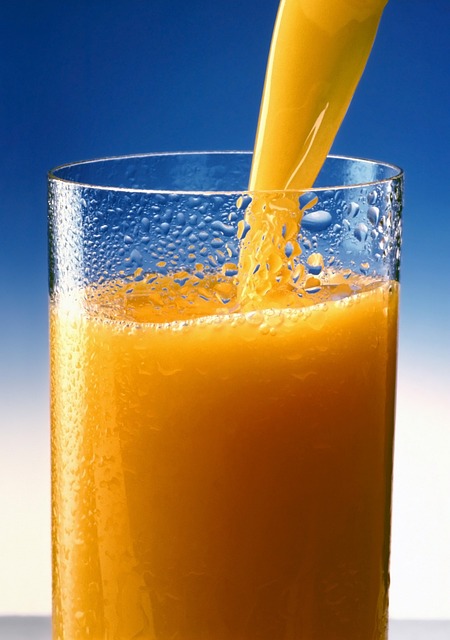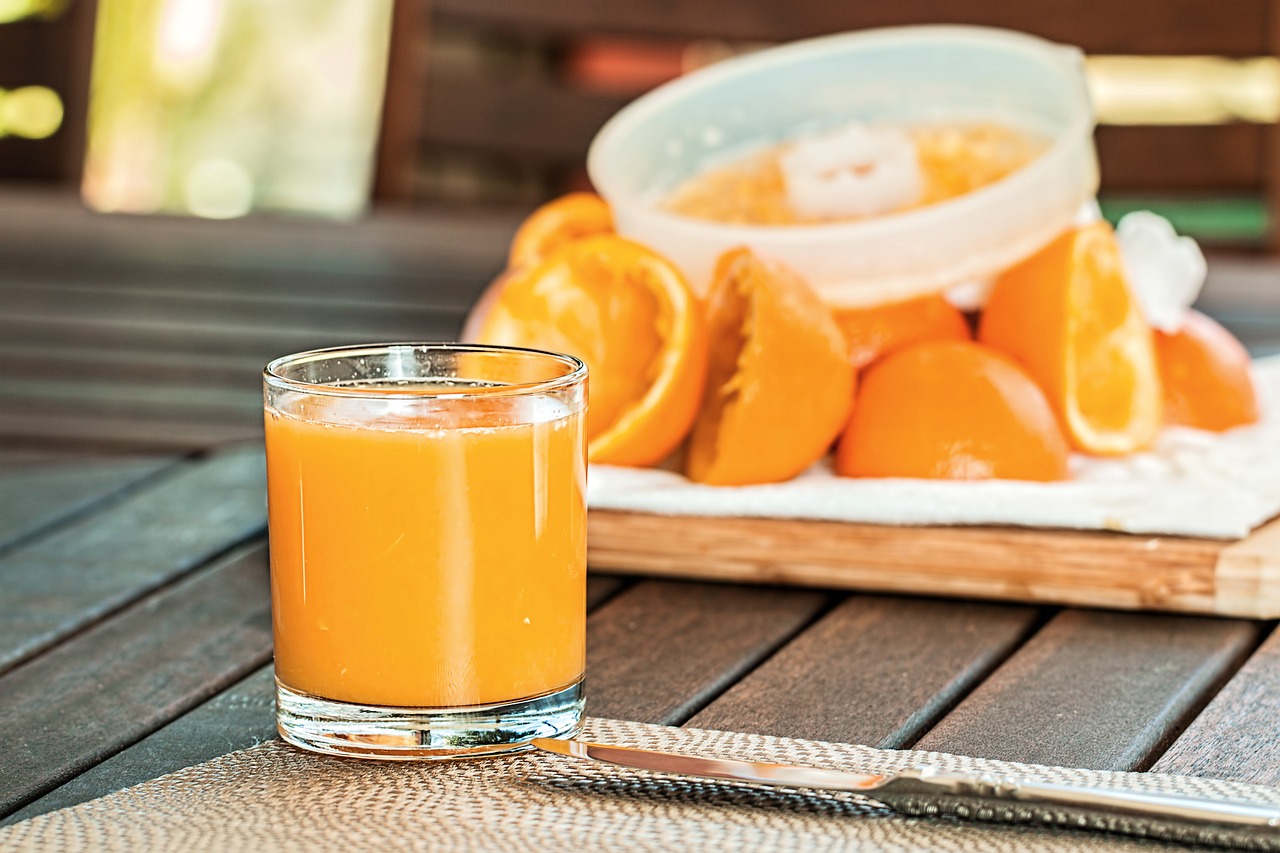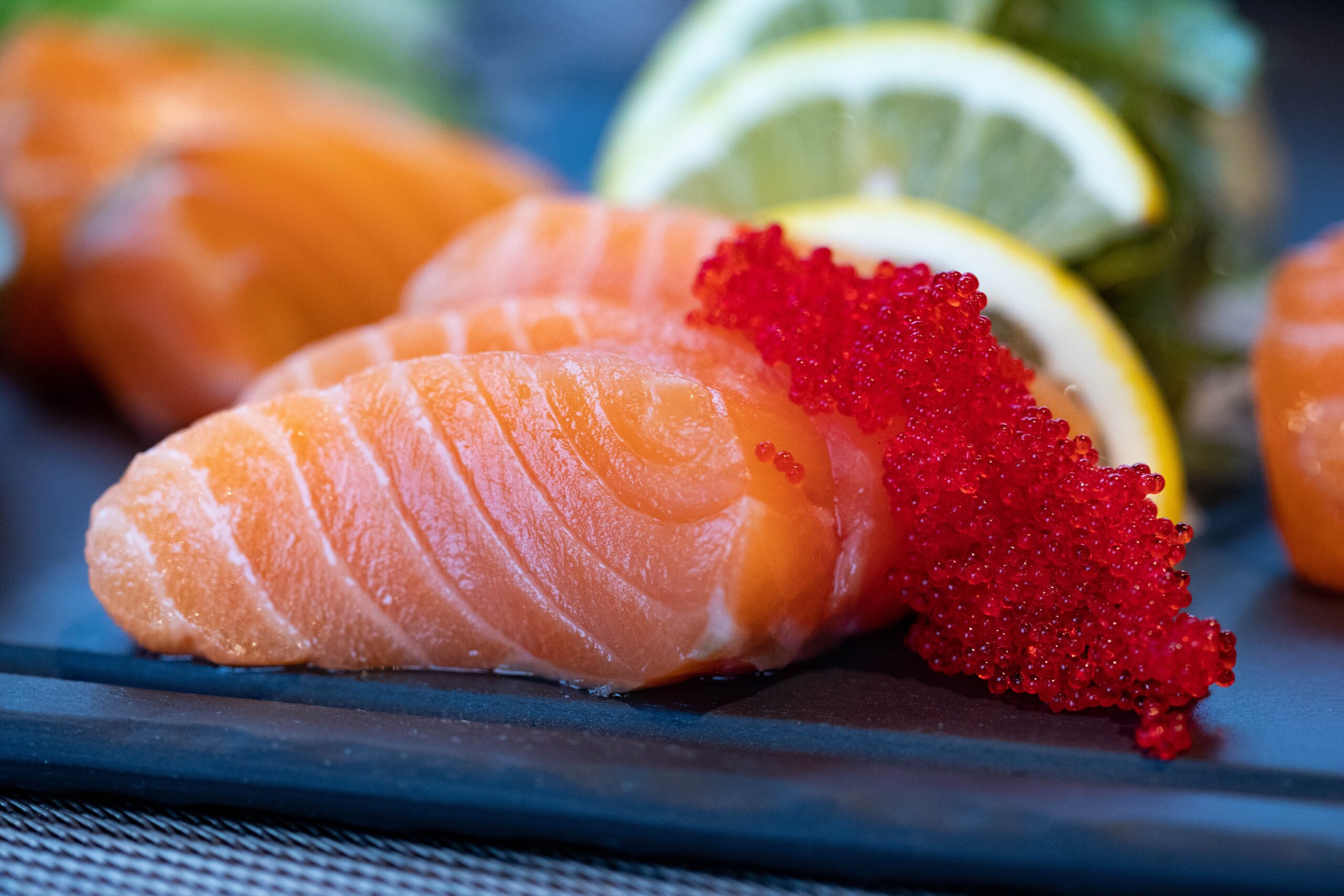Orange juice can turn sour due to factors like exposure to air, bacterial growth, using overly ripe oranges, or natural variations in orange acidity.
Sour orange juice is a common issue that can detract from enjoying a refreshing glass of citrus goodness. The tangy, acidic taste of sour juice can significantly impact the flavor and experience of drinking orange juice.
Identifying the sour juice on time is essential as it can have several consequences. Not only does it diminish the taste and quality of the juice, but it can also indicate potential spoilage or contamination.
Let’s discuss problems with sour orange juice, how it affects taste, and why quickly recognizing and dealing with sour juice is important.
Why Is My Orange Juice Sour? The Most Common Causes

Orange juice can sometimes develop a sour taste due to a natural process called oxidation. When the juice comes into contact with oxygen from the air, its sugars begin to break down and ferment, resulting in a sour flavor.
Identifying sourness promptly is important as it indicates that the juice is no longer fresh and might not be safe to consume. This knowledge helps prevent waste and ensures you enjoy the best quality juice.
However, here are the most common reasons why orange juice can turn sour.
Oxidation and Exposure to Air:
Oxidation and exposure to air make orange juice sour through a process that involves the breakdown of sugars. When orange juice comes into contact with oxygen in the air, it undergoes chemical changes.
Enzymes in the juice interact with oxygen oxidizing sugars, primarily fructose and glucose.
As a result of this oxidation, the sugars transform into organic acids like citric acid, which gives rise to the sour taste.
This process is accelerated when the juice is not properly sealed or refrigerated, allowing more air to come in contact with the juice.
In essence, the interaction between oxygen and the juice’s natural components causes the conversion of sugars into acids, altering the juice’s flavor profile from sweet to sour over time.
Bacterial Growth and Fermentation:
Bacteria naturally present in the environment or on the fruit can multiply in the juice, fermenting sugars and producing acids. This fermentation process contributes to the sour taste.
However, Bacterial growth and fermentation lead to the sourness of orange juice through the following process:
- Introduction of Microorganisms: Bacteria naturally present in the environment or on the fruit’s surface can find their way into the juice.
- Fermentation of Sugars: The bacteria consume the sugars in the juice as an energy source, resulting in fermentation.
- Production of Acids: During fermentation, bacteria produce organic acids like acetic acid and lactic acid as byproducts.
- Increase in Acidity: The accumulation of these acids increases the overall acidity of the juice, causing the shift from a sweet to a sour taste.
Ripeness of Oranges:
Using overly ripe or slightly spoiled oranges can result in sour juice. As fruits ripen, their sugar content decreases while acidity increases, affecting the overall flavor.
Variation in Orange Acidity:
Different orange varieties have varying levels of acidity. Some types naturally have a higher acid content, which can lead to a sour taste in the juice.
- Citric Acid,
- Ascorbic Acid,
- Malic Acid, etc., is the most common acidic content in different contents that fasters the sourness of orange juice.
Temperature and Storage:
Improper storage, such as leaving orange juice at warm temperatures, can encourage bacterial growth and spoilage, causing the juice to turn sour more quickly.
- Orange juice can become sour faster at warmer temperatures, typically above 40°F (4.4°C).
- Besides, leaving orange juice at room temperature, exposure to direct sunlight, keeping the container open, and not sealing it properly can lead to the juice souring.
Expiry or Spoilage:
Expired or spoiled orange juice can become sour. Microbial growth and chemical changes during spoilage can lead to undesirable flavors.
The expiry date is usually printed on the label of the orange juice container, often near the top, bottom, or side of the packaging.
Additives and Preservatives:
- Additives and preservatives are meant to extend the shelf life of orange juice, but certain factors can lead to quicker souring. Some additives, like ascorbic acid (vitamin C), can slow oxidation and prolong freshness.
- However, if the juice contains sugars or artificial sweeteners, they might encourage fermentation when exposed to air.
- Preservatives like benzoates and sulfites are typically added to inhibit spoilage. Still, improper storage or excessive exposure to heat can neutralize their effects, allowing bacteria and yeasts to thrive and resulting in faster souring.
It’s essential to follow storage guidelines to maintain the intended shelf life of commercially prepared orange juice.
Natural Degradation:
Orange juice, like other natural products, undergoes chemical changes over time. However,
- Natural degradation of orange juice can increase sourness over time due to the breakdown of sugars and other compounds.
- As orange juice is exposed to factors like oxygen, light, and temperature fluctuations, its components break down.
- The natural sugars in the juice can be converted into acids through oxidation and enzymatic reactions. This conversion of sugars to acids leads to a shift in flavor, making the juice taste sour.
- While natural degradation is a normal process, proper storage, and prompt consumption can help mitigate the extent of sourness that develops in orange juice over time.
Learning the reasons can assist you in stopping or dealing with sour orange juice problems, resulting in a more enjoyable and safer drink.
How to Improve the Taste of Your Sour Orange Juice?
Are you tired of that sour taste when you drink orange juice? No need to stress; there are easy ways to enhance the flavor and make it more pleasant.
Whether you’re dealing with overly acidic oranges or simply prefer a sweeter flavor, these tips will help you transform your sour orange juice into a delicious and refreshing drink.
From adding natural sweeteners to balancing the acidity, discover how to enhance the taste of your orange juice and make it a delightful treat for any time of the day.
Sweetener Addition: Add a natural sweetener like honey, agave syrup, or a sugar substitute to balance out the sourness.
Adding Sweeteners introduces a pleasant sweetness that contrasts with the sourness, creating a more harmonious flavor profile.
Gradually incorporating the sweetener allows you to control the level of sweetness, ensuring it doesn’t overpower the natural orange taste. This method transforms the juice into a well-rounded and enjoyable beverage.
However, it’s essential to note that while sweeteners enhance taste, they don’t reverse spoilage, so starting with fresh juice is crucial for the best results.
Add Fruit: Drop in slices of sweet fruits like strawberries, peaches, or mangoes into the juice. They’ll infuse natural sweetness and flavors over time.
Incorporating fresh fruit can enhance the taste of sour orange juice due to:
- Natural Sweetness: Slices of sweet fruits like strawberries, peaches, or mangoes infuse the juice with their natural sugars, balancing out the sourness.
- Flavor Infusion: The added fruits impart their distinct flavors, creating a more complex and enjoyable taste profile.
- Visual Appeal: Colorful fruit slices enhance the aesthetic appeal of the beverage, making it more enticing.
- Texture Variation: Fruit pieces add a pleasing texture contrast, transforming the juice into a refreshing and textured drink.
Mix with Sweeter Juice: Blending sour orange juice with sweeter juices, like apple or pineapple, can greatly enhance its taste.
The natural sugars in the sweeter juice help mask the sourness of the orange juice, creating a balanced and more enjoyable flavor.
Mixing also provides a broader spectrum of flavors, resulting in a complex and satisfying drink.
However, this method should be used when both juices are fresh to ensure the quality of the final blend.
Keep in mind that while mixing can improve taste, it doesn’t reverse spoilage, so starting with fresh ingredients is crucial for a delicious outcome.
Herbal Infusion: Experiment with adding fresh herbs like mint, basil, or thyme to enhance the overall taste profile, masking the sourness.
Sparkling Water: Mix the sour orange juice with sparkling water to create a refreshing, fizzy beverage that can help mellow the sourness.
Remember, while these methods can help mask the sour taste, they won’t completely reverse spoilage or fermentation. Using your judgment and prioritizing consuming fresh and safe beverages is important.
Importance of Identifying the Sour Juice Promptly

Identifying sour juice promptly is important for the following reasons:
Consumption Safety:
It ensures you don’t consume spoiled juice, which could lead to digestive discomfort or health issues.
According to the US Food and Drug, Consuming untreated juice can pose health risks to your family.
However, Identifying sour juice promptly is crucial for safe consumption. Sourness often indicates the onset of spoilage due to factors like bacterial growth and oxidation.
Consuming spoiled juice can lead to digestive discomfort and potential health risks. Prompt recognition allows you to avoid ingesting harmful microorganisms and their byproducts.
Additionally, it prevents wastage and preserves the nutritional value of the juice.
Regularly inspecting the juice’s taste, smell, and appearance ensures that you consume not only palatable but also safe beverages, promoting your well-being and a positive drinking experience.
Taste and Enjoyment:
Early detection prevents consuming unpleasant-tasting juice, preserving the enjoyable flavor experience.
Besides, identifying the sour juice on time prevents the unpleasant experiences of consuming sour juice and unappetizing beverages.
Prevent Waste:
Recognizing sourness allows you to discard the juice before it spoils further, reducing the waste of both the juice and the container.
Health Concerns:
Sourness often signifies microbial growth and potential spoilage. Consuming such juice can lead to digestive discomfort and even health risks due to harmful microorganisms.
- Recognizing sourness early prevents ingesting bacteria, molds, and byproducts that develop in spoiled juice. This proactive approach safeguards your well-being, preventing potential foodborne illnesses.
- Regularly assessing juice’s taste, odor, and appearance ensures that what you consume aligns with food safety standards.
- Prioritizing timely identification contributes to maintaining a healthy diet and minimizing the chances of consuming compromised beverages.
In a Nutshell, Sourness might indicate microbial growth, which could be harmful if consumed, making early identification crucial for health reasons.
Cost Efficiency:
Avoiding the consumption of sour juice prevents wasting money on spoiled products.
Cooking and Recipes:
Prompt identification ensures that you don’t use sour juice in recipes, preventing unwanted flavors in your dishes.
Promptly Identifying sour juice is crucial for preserving your cooking recipes and minimizing costs.
- Sour juice can negatively impact the flavors of dishes, altering the intended taste and quality of your recipes.
By spotting sourness early, you prevent the inclusion of compromised juice in your cooking, ensuring the authenticity of flavors. This avoids the waste of ingredients and efforts invested in preparing meals.
- Additionally, using fresh and untainted juice enhances the overall dining experience.
- Timely identification safeguards your culinary creations, maintains recipe integrity, and saves on the expense of redoing dishes or purchasing replacement ingredients due to poor-quality juice.
Avoid Negative Experiences:
Sour juice can be an unpleasant surprise. Recognizing it early avoids negative experiences when trying to enjoy a beverage.
Preserve Nutrients:
Freshness is tied to nutrient content. Identifying sourness helps you consume juice while it’s still nutritious.
Hydration and Refreshment:
Sour juice might not be as refreshing. Early detection ensures you get the desired refreshment from your beverage.
How to Prevent the Orange Juice From Turning Sour?
Preventing orange juice from turning sour is crucial to maintain its freshness and taste. Sour orange juice affects its flavor and poses a health risk due to bacterial growth.
Whether for personal consumption or commercial purposes, preventing the souring of orange juice is essential in providing a satisfying and safe beverage experience. To prevent orange juice from turning sour, consider the following tips:
- Refrigeration: Store orange juice below 40°F (4.4°C) in the refrigerator. Cold temperatures slow down the oxidation process, which leads to sourness.
- Air Exposure: Seal the container tightly to minimize contact with air. Oxygen exposure accelerates the breakdown of sugars and leads to fermentation.
- Use Fresh Oranges: Freshly squeezed juice is less likely to turn sour quickly than pre-packaged varieties, which might have additives that affect its shelf life.
- Immediate Consumption: Consume freshly squeezed orange juice within a day or two to enjoy its best flavor and nutritional value.
After two days, the taste and nutritious value of the orange might start to deteriorate.
Obviously, you won’t get the accurate taste and flavor of orange juice when it gets spoiled.
- Avoid Over-extraction: When juicing oranges, avoid over-extraction as it can lead to bitterness, affecting the overall taste of the juice.
So Avoid over-extraction to orange when producing juice from it.
By following these steps, your orange juice will stay fresh longer and won’t become sour.
FAQs
1. Why is my orange juice sour after I bought it from the store?
Orange juice can turn sour due to factors like exposure to air, improper storage, or the juice being close to its expiration date.
2. Can freshly squeezed orange juice go sour quickly?
Yes, freshly squeezed orange juice can quickly turn sour, especially if it’s not refrigerated promptly. Fresh juice lacks preservatives found in store-bought varieties.
3. Does temperature affect the sourness of orange juice?
Yes, temperature affects the sourness of orange juice. Warm temperatures can accelerate the growth of bacteria and spoilage, leading to sourness.
4. Can oranges that look fine still produce sour juice?
Yes, oranges that appear fine externally can still produce sour juice depending on ripeness and variety.
5. Why does homemade orange juice sometimes taste sour?
Homemade orange juice can turn sour if the oranges used are overly ripe or starting to spoil. Additionally, exposure to air during juicing can lead to oxidation and sourness.
6. Can bacterial growth cause orange juice to become sour?
Yes, bacterial growth can cause orange juice to become sour.
Bacteria can ferment the natural sugars in the juice, producing acids that lead to a sour taste.
7. Can freezing orange juice make it sour?
Yes, freezing orange juice can make it sour if not properly stored, leading to freezer burn and altered taste.
8. Can sour orange juice be harmful to drink?
No, Sour orange juice might not be harmful, but it indicates the juice spoils. While drinking in small amounts might not be unsafe, consuming spoiled food or drinks can lead to digestive discomfort.
9. Does the type of orange affect the sourness of the juice?
Yes, the type of orange can affect the sourness of the juice, as different orange varieties have varying levels of acidity and sweetness.
Conclusion
There are several common causes for orange juice to turn sour. These include the expiration of the juice, improper storage, exposure to air, and the growth of bacteria or mold.
To prevent sourness, it is important to check the expiration date, store the juice properly in a cool place, seal the container tightly, and consume it within a few days after opening.















